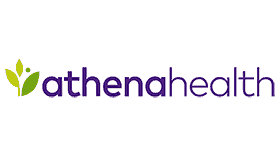Our full guide to call handling, the best practices for both inbound and outbound calls, and whether you can outsource your calls!

What is Call Handling?
Simply put, call handling is how a business deals with both outbound calls and incoming calls. Call handling varies massively depending on what type of business you are running. For instance, a tradesperson running a small outfit might deal with all of their own calls. A small business may have a receptionist to take care of calls, and huge corporations might have full call centers full of staff. Dealing with callers is also different depending on what industry you are in. If you sell products then a lot of your calls might be about defective products, warranties and other issues. If you run a time-based business then a lot of calls might be about scheduling. Call handling, as a term, incorporates many different aspects related to business phone calls:
- If a phone call is answered
- How quickly it gets answered
- How helpful the call staff or receptionist is to the caller
- How calls are routed and who the inbound calls go to
- Whether any phone calls are blocked or ignored
- If there is a process to log calls and call details
- Whether there is a voicemail or “hold” function
- Are calls only answered during business hours?
- And much more
A lot of thought should go into how you portray your business through phone calls. This is especially true for big businesses. Not every person involved in running a business has good call handling skills, but don’t let that stop you from gaining customers or keeping existing customers happy. You can even outsource call handling if required. A well-handled call can be the difference between keeping a customer, or losing them to a competing business.
How Call Handling Works (Inbound and Outbound)
In truth, call handling can vary so much depending on what type of business you are running. Customer inquiries via telephone might be rare. In this case, you probably won’t need specific call handling staff. This might fall under the remit of a customer service executive, who may also handle emails along with other duties. Some companies rely on outbound calls for their business, gaining opportunities from warm leads or even from cold calling in some scenarios. These businesses need to be really focused on their customer experience. Small businesses might make use of call answering services such as virtual receptionists. You don’t have to employ people to deal with calls, you can work with an answering service to create a call answering script and a plan to make sure customers’ needs are met. This can offer flexibility that doesn’t come with other types of call handling. Calls can be taken out of hours, and you can pay for the time spent working on your business calls rather than employing someone full-time. Call handling isn’t just about being able to route calls and deal with customers politely. It’s about what you do with the information, and how the details of the callers are dealt with. Information about either potential customers, or existing customers with a problem, can be tracked and managed on a CRM. Nexa’s virtual receptionists can integrate with Salesforce and other leading software to set up reminders, and track inquiries from a customers’ first call to last.
Why You Should Optimize Call Handling (Or Use a Call Handling Service)
A telephone call might be one of your only chances to make an impact on a customer. This is the case with both outbound and inbound call handling. It’s vital that you have a system in place, and that you do all you can to make a good impression. In a PWC survey, 78 percent of participants said they would rather interact with a human. Friendliness, efficiency and a personal touch are all still valued. More than 60 percent of searchers have said they feel it is important to know they are able to call a business before they consider purchasing. If nothing else, this fact shows that trust and call handling are intrinsically linked. That means that if someone calls your business, you need to make the customer feel valued. Plus, you need to deal with their issue or query quickly and effectively. Ultimately, there is a link between your business, its success and the way you handle calls. Ignoring a call, or losing a customer due to long wait times and delays in responding to queries, can seem insignificant but this loss of customers can add up. Ignoring a call, or failing to make a caller feel valued, can also lead to negative reviews. Word travels quickly, and in the age of transparency and online reviews, it is even more vital to value every customer. If you are concerned about your call handling, and setting up an effective system to take customer calls, you can outsource the task. Using call handling services is possible even for small businesses without employees. Done well, integrating a phone answering service can be totally seamless and cause no interruptions to your business.
Call Handling Metrics
Call handling effectiveness can be measured with certain metrics. First Call Resolution (FCR) is one of the key metrics. FCR measures the percentage of issues that are resolved at the first point of contact. It’s easy to calculate:
Number of FCR calls % Total Number of Calls = FCR value
Other metrics that can be used to measure the effectiveness of your call handling include:
- Abandon Rate. This is the rate of customers who give up on the call entirely, usually because they can’t be connected to an agent.
- Average Handle Time. This is often abbreviated to AHT. It refers to how long overall the customer spends on the phone to the business. Call centers spend a lot of effort driving this down due to the fact that it can save time, and therefore money, for businesses.
- Average Speed of Answer. This metric ties very closely to the abandon rate. It is effectively the wait time for someone to answer the phone. It may be referred to as the “Service Level”. Companies set a predetermined goal for how quickly they should answer their inbound calls, and the Service Level refers to how many calls meet this goal.
- First Call Resolution. This refers to how many customer issues are dealt with at the first point of contact.
All of these metrics are a way to measure customer satisfaction. It can be a lot to understand for a small business. You don’t have to analyze all of these metrics in order to deal with your callers properly. Fortunately, you can follow some simple best practices to ensure a positive customer experience. The higher the volume of calls your business is dealing with, the more important tracking these metrics becomes. It can be a lot to take on for a growing business, which is why outsourcing might be a simple and time-saving solution. Working with Nexa, you can ensure that trained call handlers are dealing with all of your inbound customers, and optimizing the vital call handling metrics. You can also choose a plan based on your budget and the size of your business.
Call Handling Best Practices
Customers expect their calls to be dealt with properly. In some cases, it is almost taken for granted that you offer good customer service. Bad call handling makes your business stand out, for all the wrong reasons. It can cost you customers, result in bad reviews and ultimately damage your bottom line. To implement a good call handling system within your business, there are some relatively simple rules to follow. Although inbound call center services can greatly help you, we’ve presented these rules as “Do’s and Don’ts”.
Do:
- Ensure that your calls are always answered quickly and in a friendly manner. First impressions are vitally important.
- Create a personalized experience. Your call handlers should take the time to learn the customer’s name, their history with the company and all of the relevant details about their reason for calling. Tailored responses show that you care about customers.
- Be as polite as possible. Manners go a long way. Saying “please” and “thank you” are minimum requirements.
- Remain calm. This is especially vital if you are dealing with complaints. Things might get heated, but call handlers need to stay calm throughout to ensure problems are dealt with properly and matters aren’t made worse.
- Get the best possible staff dealing with customers. Some people are gifted with a soothing tone of voice or the ability to get people onside over the phone. Whether you are outsourcing or you are handling calls internally, make use of peoples’ unique skill sets.
Don’t:
- Make things unnecessarily difficult. A multiple-choice routing system is an example of a way to frustrate customers. So is leaving them on hold for long periods of time. Avoid these sure-fire ways of putting off customers.
- Overpromise. The temptation for call center staff and for call handlers within your business can be to promise the world. This is a way to get customers to feel better in the short-term. If you can’t deliver on these promises, contacts and customers will be left disappointed or even angry.







































































